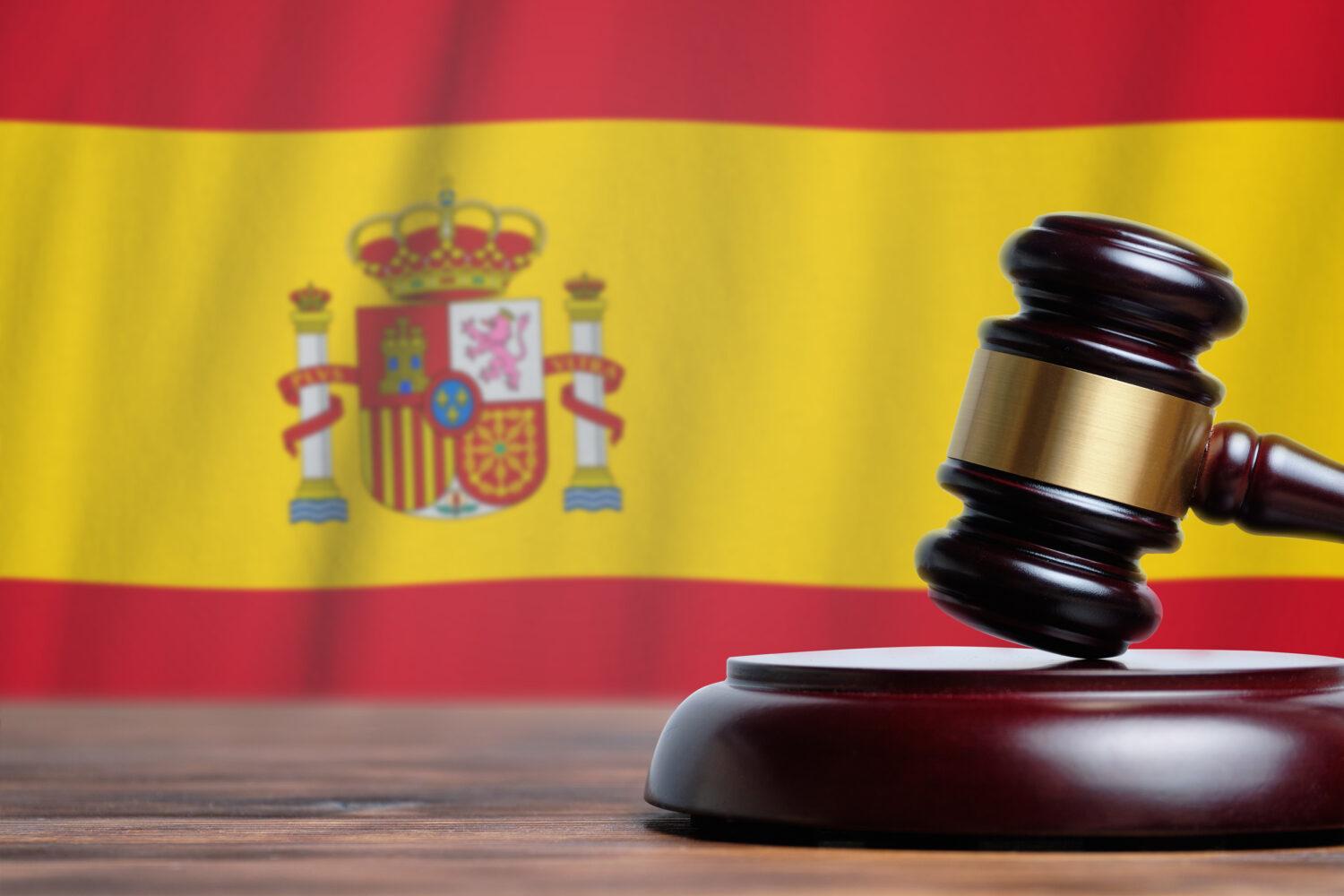In the labyrinth of life’s eventualities, the inevitability of inheritance intertwines with the intricate tapestry of global connections. As families stretch across continents and assets cross borders, understanding the tax implications in the wake of a loved one’s passing becomes not just practical but essential. Spain, with its rich history, vibrant culture, and diverse regions, also presents a unique mosaic of tax laws that govern inheritance. These rules, especially for assets derived from abroad, are as varied as they are complex, painting a vivid picture of fiscal obligations that can bewilder the uninitiated.
This exploration seeks to illuminate the path through Spain’s tax landscape for those inheriting from lands afar. Whether you are nestled among the rolling hills of Andalucía, amidst the bustling streets of Barcelona, or beyond the Spanish borders dreaming of siestas and fiestas, understanding these regulations is paramount. Here, we delve into the intricacies of Spanish tax rules on inheritance from abroad, navigating through the legal nuances to offer clarity in times of loss and transition. Join us on this journey through the legal frameworks and fiscal responsibilities that await under the Iberian sun, in an effort to demystify the obligations that accompany the bittersweet gift of inheritance.
Understanding Spanish Inheritance Tax for Foreign Assets
Navigating the labyrinthine alleys of legacy and inheritance laws can often feel like an Odyssean quest, especially when it encompasses assets sprawled across the serene landscapes of Spain and your home country’s borders. The Spanish inheritance tax, or “Impuesto sobre Sucesiones y Donaciones,” is a formidable adversary in this quest, with its grip not just confined to the sunny expanses within Spain but also reaching into the foreign treasures that dare to lay claim to Spanish residencies. It whispers a tale of complexity where, for assets held afar but heirs anchored to Spanish soil, the tax lures them into a dance of legality under the clear Iberian skies.
In the theatrics of inheritance, the stage is set with diverse actors: the heirs and the benefactors, each playing their part under the vigilant eyes of the Spanish tax regulations. Within this narrative, non-residents of Spain, holding assets abroad, must attune their senses to the potential implications these rules have on their foreign assets. The tax rate, as though it were a chameleon, shifts colors depending on the autonomous community within Spain, oscillating between 7.65% to 34% of the asset’s value. This spectacle of numbers demands that each beneficiary, armed with knowledge and foresight, consults the table of obligations.
| Relationship | Tax Rate | Allowances |
|---|---|---|
| Direct Descendants & Spouses | 7.65% – 34% | €15,956.87 – €47,858.59 |
| Siblings & Relatives (2nd Degree) | 7.65% – 34% | €7,993.46 |
| Others | 7.65% – 34% | No allowances |
Delving deeper, one uncovers that the behemoth of taxation also harbors a benevolent spirit, bestowing upon certain relationships a shield of allowances, a fortress against the formidable taxes. This melodic interplay between tax rates and allowances emphasizes the essence of preparedness, of consulting the map of inheritance and gifting long before the ships are set to sail. Whether you are entangled in the warm embrace of family or charting solitary paths across the seas, understanding these dynamics ensures that your odyssey into the Spanish inheritance landscape is less daunting and more a journey of informed decision-making.
Navigating the Dual-Taxation Dilemma: Spain and Your Home Country
In the complex labyrinth of international inheritance laws, Spain adds its unique twist, rife with opportunities and pitfalls. Understanding how Spain taxes inheritances from abroad becomes pivotal for expatriates and foreign property owners. Unlike many countries, Spain’s inheritance tax is not imposed on the estate but on the beneficiary, which means that each inheritor’s tax liability is calculated individually. This is dependent on their relation to the deceased, the value of the inheritance, and the autonomous community within Spain where the property resides. The diverse rates across autonomous communities add another layer of complexity, as regions like Andalusia have significantly more favorable rates compared to others.
Here’s a bird’s-eye view of how Spain calculates inheritance tax for foreign nationals: Assets and rights with a physical or management presence in Spain are taxable, irrespective of the beneficiary’s residency. For non-residents inheriting assets outside of Spain, the situation gets murkier. The Double Taxation Agreement (DTA) between Spain and your home country can play a crucial role, potentially mitigating the risk of being taxed twice. Yet, not all countries have such agreements concerning inheritance taxes with Spain. To navigate this dual-taxation dilemma, it’s advisable to seek specialized tax advice both in Spain and your home country. Below is a simplified chart illustrating the inheritance tax rates in Spain, though it’s important to check the latest figures and exemptions applicable to your unique situation.
| Relationship | Tax Rate | Exemptions | Comments |
|---|---|---|---|
| Group I: Direct descendants under 21 | 7.65% – 34% | Varies by region | Benefits from reductions |
| Group II: Direct descendants 21+, spouse, parents | 7.65% – 34% | Increases with inheritance value | Most common bracket |
| Group III: In-laws and their ascendants/descendants | 7.65% – 34% | Lower exemptions | Higher rates may apply |
| Group IV: Unrelated parties | 7.65% – 34% | Minimal exemptions | Highest tax burden |
Maximizing Exemptions and Deductions under Spanish Law
In navigating the complexities of Spanish tax law, particularly where inheritance from abroad is concerned, ingenious strategies can be employed to optimize exemptions and deductions available. It’s crucial to start by understanding the dual layers of taxation in Spain – the state and the autonomous communities, each with its special set of rules and allowances. Among these, leveraging personal and family-based reductions can significantly lower the tax burden on inherited assets. For instance, the application of kinship reductions can vary substantially across different regions, with some offering as much as a 99% reduction if the beneficiary is a direct relative (spouse, child, or parent).
Furthermore, investing time in crafting a tax-efficient will can be tremendously beneficial. This includes specifying the distribution of assets in a manner that aligns with Spanish legal frameworks to maximize lower tax rates and deductions. Additionally, it’s important to consider the potential for double taxation agreements (DTA) between Spain and the country of the deceased’s residence, which can prevent the inheritance from being taxed twice. Here is a simplified breakdown of practical steps to maximize exemptions and deductions:
- Investigate regional benefits: Each autonomous community in Spain has its own set of rules. Familiarizing oneself with these can uncover opportunities for exemptions or lower rates.
- Utilize DTAs: Check for any double taxation agreements between Spain and the country from where the inheritance originates to navigate or potentially reduce liabilities.
In addition to employing these strategies, consulting with a tax lawyer who specializes in Spanish inheritance law can provide bespoke advice tailored to an individual’s unique circumstances. They can help pierce through the intricate tapestry of Spanish inheritance tax rules, ensuring that the heirs can retain as much of their inheritance as legally possible.
| Strategy | Benefit |
|---|---|
| Regional Exemptions | Can reduce tax rates significantly depending on the autonomous community |
| Double Taxation Agreements | Prevents the inheritance from being taxed twice across borders |
| Efficient Will Structuring | Aligns asset distribution with favorable tax strategies |
Strategic Estate Planning for International Assets: Recommendations for Success
Navigating the complex landscape of Spanish tax laws concerning inheritance from abroad can be a daunting task. However, understanding the key rules can significantly streamline the strategic planning process for international assets. Firstly, it’s crucial to recognize that Spain treats domestic and international inheritances differently. International assets inherited by Spanish residents are subject to Spanish Inheritance and Gift Tax (Impuesto sobre Sucesiones y Donaciones, ISD). However, the application of these taxes varies significantly depending on the autonomous community within Spain, as they have the autonomy to legislate their tax reliefs and allowances.
For individuals with international assets, a few strategic recommendations stand out:
-
Explore bilateral agreements: Spain has signed several treaties to avoid double taxation on inheritances. Review these agreements carefully, as they may offer avenues for tax relief.
-
Understand the allowances: Each autonomous community in Spain offers different allowances and thresholds for inheritance tax. These can significantly impact the net amount inherited. For example, in Andalusia, close relatives (group I and II, which include the spouse, children, and parents) can benefit from a high personal allowance, drastically reducing the taxable base.
Additionally, it’s worthwhile to delve into specific tax obligations for inheriting international assets. These include:
-
Declaration: Beneficiaries must declare the inheritance to Spanish tax authorities within six months of the decedent’s death. This period can be extended by an additional six months upon request.
-
Valuation of assets: International assets need to be valued according to their market value at the time of the decedent’s death. For real estate, this often requires a local valuation to be submitted to Spanish authorities.
Strategizing estate planning for international assets with these considerations in mind can mitigate potential tax liabilities and pave the way for a smoother inheritance process. Consulting with a tax professional who is well-versed in both Spanish and international tax laws is advisable to navigate this intricate process effectively.
The Way Forward
As we draw the curtain on our journey through the labyrinthine corridors of Spain’s inheritance tax rules regarding assets from beyond its borders, we hope this exposition has served as a beacon, illuminating paths through the oft-murky waters of fiscal obligations. The Spanish tax system, with its diverse regional nuances and intricate web of regulations, requires careful navigation, particularly when it comes to inheritance from afar.
For those standing on the brink of this complex landscape, armed with inheritance from foreign lands, the key lies in diligent preparation and seeking counsel well-versed in the intricacies of both Spanish and international tax laws. Understanding how these rules apply to your unique situation can transform a potentially daunting experience into a navigable journey.
Inheritance, at its core, is more than a transfer of wealth; it is a continuation of legacies, the bridging of past and present. As much as it is about what we leave behind, it is also about ensuring a seamless transition that honors the wishes of those who have passed while embracing the responsibilities towards those who remain.
As you move forward, let the insights gleaned here be your guide, reminding you of the importance of foresight, preparation, and the pursuit of professional advice. Whether you find yourself as the giver or receiver in this timeless exchange, remember that beyond the numbers and legalities lies a story—a narrative that spans generations and geography. In the end, navigating Spain’s inheritance tax rules on assets from abroad is not just about confronting obligations but about continuing stories, honoring memories, and embracing legacies with wisdom and grace.




